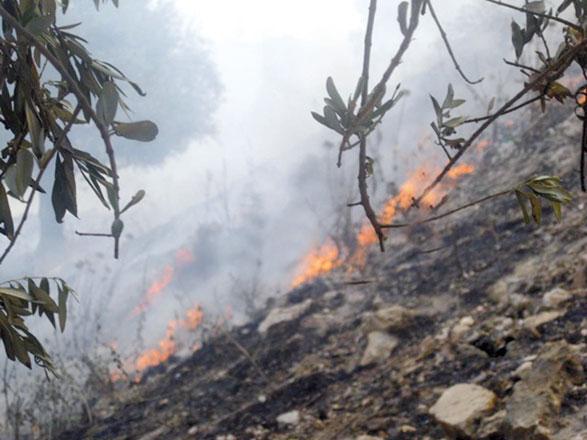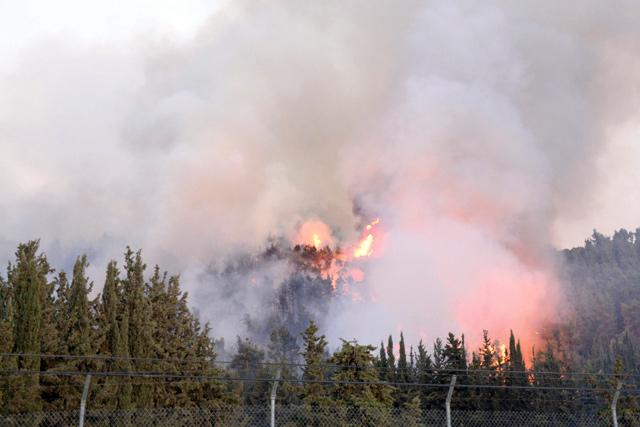You are here
Ministry hopes tribal leaders will help fight to protect forests
By Hana Namrouqa - Oct 02,2016 - Last updated at Oct 02,2016

Forests in Jordan constitute less than 1 per cent of the country’s total area of 97,000 square kilometres (Photo by Amjad Ghsoun)
AMMAN — The Ministry of Agriculture will collaborate with tribal leaders in areas with dense green cover to stop violations against forests, according to a government official.
Illegal logging is reported all year round, but it rises ahead of and during winter, said Raed Odwan, head of the ministry’s forestry department.
But the department’s patrols and initiatives to stop the practice will not work without the cooperation of local communities, he told The Jordan Times on Sunday.
“We will target tribal leaders in areas where there are forests that witness violations and illegal logging, particularly during winter. There is no better way to protect our forests than through cooperation with the local community,” Odwan said.
In addition, the forestry department will ask imams in areas with forests to deliver sermons that raise awareness of the dangers of illegal logging, and remind the public that abuses of the Kingdom’s forests are violations against public property, and thus punishable in Islam.
The Iftaa Department, the state body responsible for issuing religious edicts, issued an edict last year in which it deemed the abuse of the Kingdom’s forests as punishable in Islam.
The new measures are among plans to step up protection of the forests, according to Odwan, who said that the ministry would employ modern technology to combat violations against the Kingdom’s trees.
Forests in Jordan constitute less than 1 per cent of the country’s total area of 97,000 square kilometres, making Jordan among the poorest countries worldwide in terms of forest cover, with the internationally accepted average of land covered by forests standing at 15 per cent of the total area.
Forestry lands amount to 1.5 million dunums, of which 250,000 dunums are bare, 400,000 dunums are natural forests, 500,000 dunums are planted forests and 350,000 are nature reserves, according to official figures.
A total of 1,982 violations against forest lands have been registered since 2002, when the Agriculture Law was drafted with penalties for those who allocate, designate, sell or barter forest lands, according to the ministry.
Related Articles
AMMAN — Plans are under way to employ modern technology in combating violations against the Kingdom’s forests, government officials said on
AMMAN — Forestry land in Jordan amounts to 1.6 million dunums, including both natural and planted forests, the Jordan News Agency, Petra, re
AMMAN — A total of 33,500 dunums of forest have been damaged in 33 wildfires across the country since the start of the summer, with 1,050 tr














